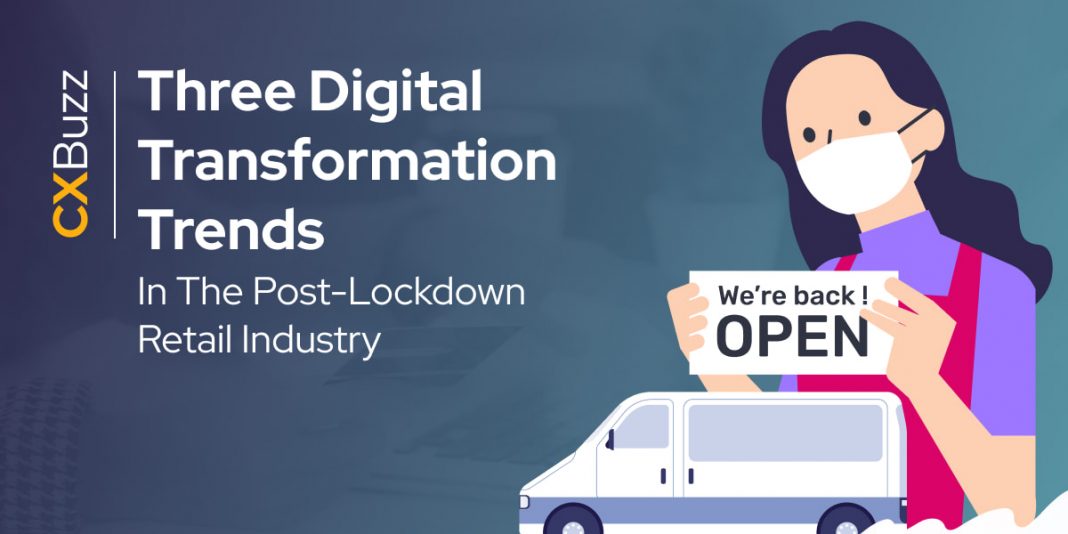The COVID-19 pandemic has changed the ways consumers shop and interact with businesses. Many local brick-and-mortar stores that were forced to shut down started exploring new business models to sell their products online. Big retailers started offering customers new ways to shop, such as the order online and curbside pickup model.
These pandemic-related changes indicate three important digital transformation trends in the retail industry that might dominate the post-pandemic world.
The Convergence of Physical Stores and e-Commerce
New business models — such as “ship from store” and “ship to store” — emerged during the pandemic. Consumers can order something online to have it delivered to their homes from a store, or they can have it delivered to the store near their home and pick it up from there. According to UPS, this model is likely to stay even after the pandemic is over.
More and more retailers are following the trend, allowing customers to shop using their mobile devices. This is also good for businesses to avoid the “empty shelf” problem, as products are delivered to stores based on customers’ orders.
The Dominance of AI
Companies are increasingly relying on advanced technology to keep track of consumer behaviors. By collecting data from their customers, companies can get a comprehensive knowledge of their customers and provide them with quick and precise services. For instance, before you walk into a showroom, a car salesperson may already know what car you own, what quality you value the most, and what your budget is, using AI to collect your data from the internet.
With the technology, businesses can quickly match customers with the desired products and services. Companies will have few products remaining unsold, and customers can save time on communicating with salespeople. AI is making retailers stay competitive and efficient.
The Combination of Cooperation and Competition
Mistrust between entities and disparate systems was making cooperation between businesses hard. Even with financial benefits, cooperation between companies can hardly be achieved. With new technology such as blockchain, businesses can safely share data and information while calculating the trade-offs in advance.
The COVID-19 pandemic has speeded up the shift to digital for retailers, but the transformation will not end there. Companies should be aware of and make good use of these trends to enhance their ability to give customers precise, personalized products and services.






